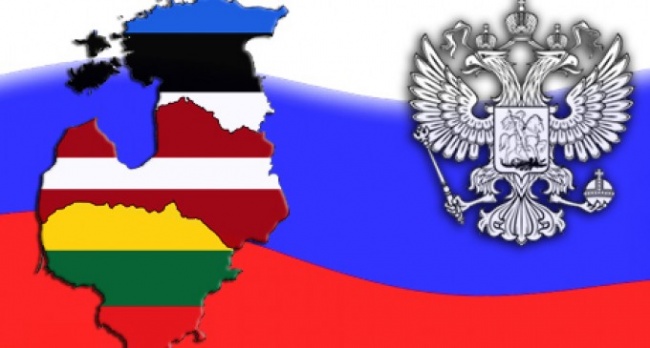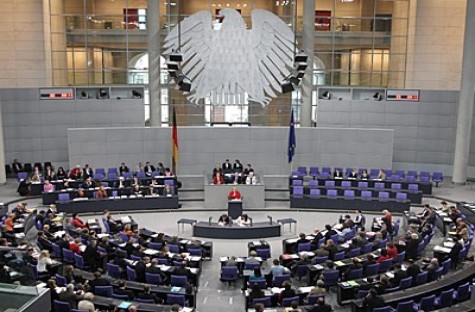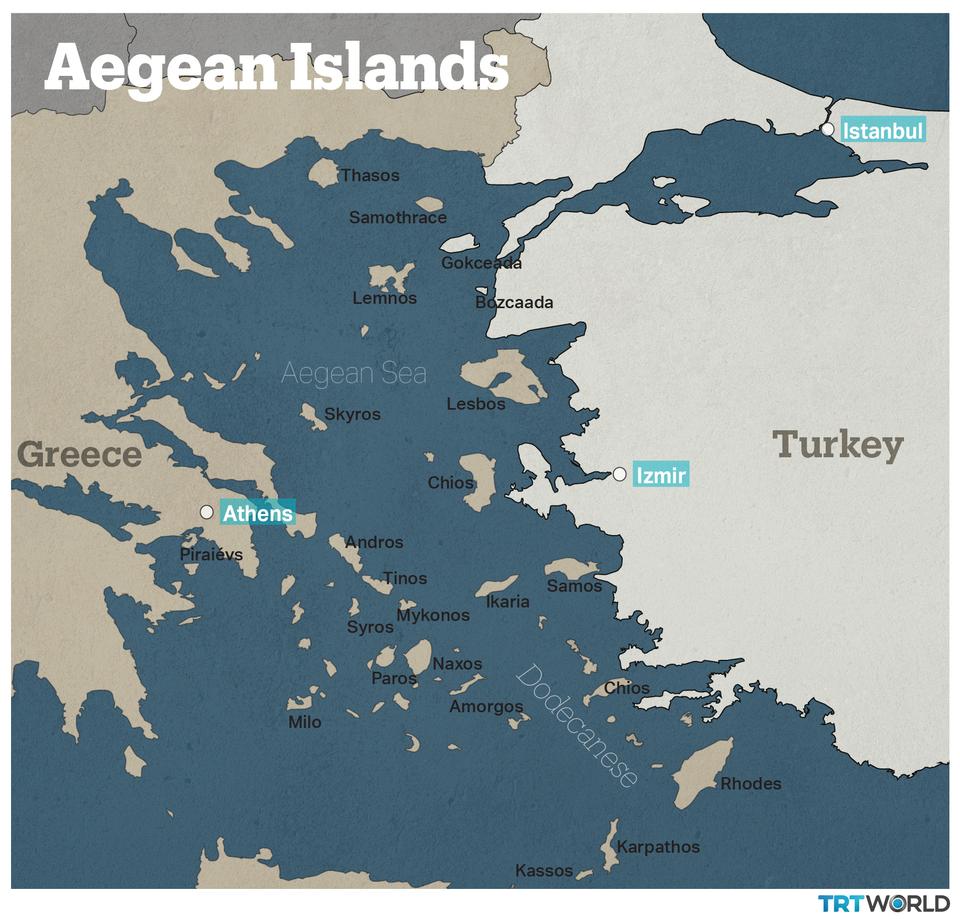
As expected, the first half of 2015 has witnessed intense lobbying of the Armenian and pro-Armenian actors, particularly in Western and South American countries, for the recognition of the 1915 events as genocide. With the intention to utilize the symbolism of the centenary of 1915, these actors expand their efforts to persuade third party governments and/or parliaments to acknowledge 1915 events as genocide. Xenophobic and Islamophobic right-wing ideologies and movements that have been on raise in Europe provided a fertile ground for the success of the Armenian campaign.
Despite the considerably favorable atmosphere in 2015 and the high hopes of the leaders of the Republic of Armenia and Armenian diaspora communities, the net result until the now can be said to be disappointing for the ‘genocide lobby’. Surely, there have been some achievements. For example, Pope Francis’ speech at the Holy Mass at St. Peter’s Basilica on 12 April 2015 has been an important accomplishment.[1] European Parliament’s Resolution on the Centenary of the Armenian Genocide on 15 September 2015, which conspicuously made references to Pope Francis’ speech, is another noteworthy success of the ‘genocide lobby’.[2]
Besides Pope Francis’ speech and the resolution of the European Parliament, some Western and South American parliaments and/or high ranking officials issued resolutions or made statements that characterized 1915 events as genocide. Although Armenian media presented these as significant accomplishments, the fact that some of these Western and South American countries had already characterized 1915 events as genocide before 2015 and that what they did in 2015 was simply to readopt similar resolutions was deliberately hidden away by the Armenian media.
In 2015, Turkey did not assume an aggressive attitude. However, it was not humble either. Stern press releases that condemn countries that adopted or readopted resolutions that characterized 1915 events as genocide were issued by the Turkish MFA. In some cases, Turkish MFA recalled its ambassadors. The Turkish reaction led some countries to conduct damage control and take some remedial actions to alleviate tensions with Turkey. The latest examples of such moves came from Luxembourg and Austria.
Luxembourgian Minister of Foreign Affairs Jean Asselborn’s Feigning Backpedal
Turkish Minister of Foreign Affairs Feridun Sinirlioğlu paid a visit to Luxembourg on 4-5 September 2015. During this visit, Minister Sinirlioğlu held a press conference with his Luxembourgian counter-part Minister Asselborn.[3] In this press conference, in reference to Luxembourgian parliament’s resolution on the 1915 events on 6 May 2015, Minister Asselborn stated that parliaments have the right to take resolutions on any matter. Minister Asselborn repeated the same old cliché that Turkey is a friend and ally of Europe and the NATO and what Luxembourgian parliament seeks is reconciliation between Armenia and Turkey. Whereas the first part of this statement is a truism, the wish for reconciliation between Armenia and Turkey is now a threadbare banal expression that almost all the actors that adopt resolutions on 1915 events repeat to mask their controversial and ‘Turkish-skeptic’ conducts. Besides that, the truth is that such resolutions have exactly the contrary effect on Armenia-Turkey relations; rather than facilitating reconciliation, they cause a great and grounded skepticism.
What was correct in Minister Asselborn’s statement was, however, that he underlined that the term genocide has a specific definition in international law and such crimes can only be established by a competent court. Alas, what Minister Asselborn failed to explain was, if so, then how and why Luxembourgian parliament could put itself into the place of a competent court. Finally, Minister Asselborn expressed his wish for the return of the Turkish Ambassador to Luxembourg who was recalled by Ankara after the Luxembourgian parliamentary resolution.
The Answers of Austrian Ministers of Justice and Austrian Minister of Foreign Affairs the Parliamentary Questions on the Characterization of the 1915 Events
Austrian Ministry of Foreign Affairs similarly backtracked following the joint statement of the political parties represented in Austrian parliament on 1915 events on 22 April 2015. Although, this was also a result of a correct calculation of the political costs of the parliamentary statement, the answers of the Austrian Minister of Foreign Affairs and Minister of Justice to the parliamentary question issued by some parliamentarians on 13 July 2015 are important for providing some crucial explanations on the question of recognition of past events as genocide.
The Joint Statement of the Political Parties Represented in Austrian Parliament on 22 April 2015
On 22 April 2015, a moment of silence in the memory of the victims of the ‘Armenian genocide’ was held in the Austrian parliament. On the same day, six parties represented in the Austrian parliament issued a joint statement acknowledging the 1915 events as genocide. The joint statement partially stated the following:
24 April will be the centenary of the genocide perpetrated against 1.5 million Armenians in the Ottoman Empire. Within this background, we remember the victims of violence, murder and exile that also tens of thousands members of other Christian peoples in the Ottoman Empire such as Aramaics, Assyrians, Chaldeans and Pontic Rum were subjected to.
On the grounds of historical responsibility - that Austro-Hungarian Empire was an ally of the Ottoman Empire during the World War 1 - it is an obligation for us to condemn and recognize these events as genocide. Likewise, Turkey’s duty is to face its dark and painful chapters of history and to recognize the crimes committed against the Armenians as genocide.
This was the first time that Austrian parliament issued a statement that defined 1915 events as genocide. Worthy to note, this statement, too, referred to Pope Francis’ abovementioned speech.
The reaction of Turkey was firm. On the same day, Turkish Ministry of Foreign affairs issued a press release condemning the Austrian parliament. Accusing the Austrian parliament of acting against law and historical truth, Turkish MFA declared boldly that attempts to put political pressure on Turkey would not bring any results other than harming inter-state relations. The Turkish MFA recalled the Turkish ambassador in Vienna Mr. Hasan Göğüş to Turkey “for consultations”.[4]
On 23 April 2015, an article on the abovementioned statement was published in the Austrian daily Die Presse.[5] This article wrote that the Austrian MFA disaffirmed characterization of the 1915 events as genocide by referring to the international law. The article stated that the Austrian MFA held to the “principle of legality” (and related to that, the principle of “no penalty without a law” - nulla poena sine lege), hence rejected the applicability of the 1948 Genocide Convention retroactively to 1915 events.
Austrian Minister of Foreign Affairs Sebastian Kurz paid a visit to Turkey on 18-19 September 2015. On 19 September, Austrian and Turkish Ministers of Foreign Affairs gave a press conference in Ankara. During the Q&A session, a journalist asked Minister Kurz about his opinion on the statement of the political parties represented in the Austrian Parliament on 22 April 2015. The journalist particularly underscored Austrian legislative organ’s declaration about an issue which is in fact within the authority of the jurisdiction.
Minister Kurz answered this question as follows:
…I want, herein, to address two issues clearly. The decision here was not a parliamentary decision. It was the opinion, declaration of an opinion of six political parties represented in the Austrian parliament. These political parties and politicians have a right to express their ideas, however, this was not a decision which was taken by parliament. It did not have the quality of a court decision. The position of Australian government has not changed; the legal status is crystal clear. The United Nations 1948 Convention clearly clarifies the term genocide and it is clear that this term does not have retroactive force.
Facing the history is important. It is clear that victims and sufferers in this context must not be forgotten. We are happy for discussing this issue and exchanging views. We will be pleased for the return of the Turkish ambassador to Vienna. I think that we had a good talk about this issue today.
Parliamentary Questions to the Austrian Ministers of Justice and Foreign Affairs
On 13 July 2015, several Austrian parliamentarians addressed Austrian Ministers of Justice and Foreign Affairs with a parliamentary question that referred to the above mentioned article in Die Presse. The parliamentary question asked the ministers whether the above mentioned arguments were the official views of the Republic of Austria; if not why the Austrian MFA held such a position; if so, how should crimes of this sort committed before 1948 be officially defined; whether there were different interpretations in criminal law; whether there had been genocides that had been established by an Austrian court so far; whether there were genocides that have been established by an international court so far.
In their replies, both ministers stated that the 1948 Genocide Convention has no retroactive force and underlined the principle of nulla poena sine lege in their replies. Minister Kurz said the statement of 22 April 2015 in the Austrian parliament was a political declaration, not a legal assessment. He added that crimes committed before 1948 could be assessed as crimes against humanity or war crimes depending on the characteristics of the events. Minister of Justice Wolfgang Brandstetter stated that no Austrian court has judged any event as genocide so far. Minister Kurz explained that the threshold to establish an event as genocide is too high and international courts are considerably hesitant to judge for the existence of the crime of genocide. He added that this more so if state responsibility is alleged.
What does the Luxembourgian and Austrian Backtracks Tell?
The backtrack of Austria and Luxembourg reveals several important issues as regards to the genocide accusations and the related ‘genocide politics’, which are no secret, but are deliberately hidden away.
First and foremost, genocide is not a sociological, historical or philosophical term. Genocide is strictly a legal term and only a competent court can decide whether a particular event constitutes the crime of genocide or not through exhausting legal procedures. In fact this very basic point is what nullifies the dominant discourse on Turkey’s “recognition of the Armenian genocide”. Genocide is not something that a state or an organization or an individual can recognize. Such ‘recognitions’ has no validity or legal meaning, and without legal processes and decisions there is no crime of genocide. Put differently, ‘recognition of the Armenian genocide’ is simply an expression of an opinion. However, opinions neither have legal force nor can they establish the truth.
Second point, which the Austrian ministers rightly mentioned in their answers, is that because genocide is a legal term and can be established only through valid legal procedures, the establishment of the crime of genocide shall follow legal procedures and rules, and these procedures shall be based on legal principles. There are several basic principles that the modern (international) law relies on. One of those basic principles is the principle of legality - nulla poena sine lege: there is no crime unless an act is encoded as a crime in law at the time of the act. At this point a simple mind exercise can unveil the entire situation with respect to the claims of genocide. Hypothetically, let us suppose that the events of 1915 had the elements of the crime of genocide. Strictly speaking in legal terms, even at that case, these events of 1915 cannot be identified as crime of genocide simply because the crime of genocide was codified by the 1948 Genocide Convention and before that there was no criminal act that was defined as the crime of genocide, hence neither the crime of genocide nor a related punishment, before 1948. In brief, the 1948 Genocide Convention has no retroactive force and it cannot be applied to events prior to 1948. If the 1915 events included elements of crime, these crimes can be the ones only already codified in the positive law by 1915.
This point is of outmost significance. It also explains why the Armenian lobby focuses all its efforts to pass parliamentary resolutions, albeit paradoxically. The Armenian lobby is no fool and is well aware that there is not much prospect to achieve any results in the legal sphere. This directs the Armenian lobby to exchange legal with the political. In other words, the Armenian lobby aims to put political and social pressure on Turkey to force it to surrender itself to these pressures.
This is the ‘politics of genocide’ and politics is malicious in its nature. Therefore, by framing the matter in correct terms, all the actors that willingly or unwillingly engage in ‘politics of genocide’ shall make precise calculations and formulate correct policies. Turkey is an unwilling player in this ‘game’. However, it was left with no choice to leave the game as the game is imposed on it. Therefore, it would be only wise for Turkey to play a successful game by using its political assets and powers to counter genocide claims. Put differently, it would be a big mistake for Turkey not to come to terms with the ‘politics of genocide’, fool itself with the discourse based on morality and conscience, which is indeed an efficient political tool of the genocide lobby, and formulate its policies and relations with Armenia and other states accordingly.
[1] See, http://www.avim.org.tr/yorumnotlarduyurular/en/COMMEMORATION-OF-THE-100TH-ANNIVERSARY-OF-THE-1915-EVENTS-AT-ST--PETER%E2%80%99S-BASILICA-/4012
[2] See, http://www.avim.org.tr/yorumnotlarduyurular/en/EUROPEAN-PARLIAMENT-RESOLUTION-OF-15-APRIL-2015-ON-THE-CENTENARY-OF-THE-ARMENIAN-GENOCIDE/4014
© 2009-2025 Center for Eurasian Studies (AVİM) All Rights Reserved
No comments yet.
-
 BECOMING THE PART OF THE PROBLEM: THE FAULTY POLICIES OF THE WEST IN EURASIA AND THE SOUTH CAUCASUS
BECOMING THE PART OF THE PROBLEM: THE FAULTY POLICIES OF THE WEST IN EURASIA AND THE SOUTH CAUCASUS
Turgut Kerem TUNCEL 11.08.2015 -
 THE NAGORNO-KARABAKH ISSUE FROM A JURIDICAL POINT OF VIEW: THE CASE OF CHIRAGOV AND OTHERS V. ARMENIA
THE NAGORNO-KARABAKH ISSUE FROM A JURIDICAL POINT OF VIEW: THE CASE OF CHIRAGOV AND OTHERS V. ARMENIA
Turgut Kerem TUNCEL 26.06.2015 -
 THE GRAIN INITIATIVE AND THE BLACK SEA SECURITY - II
THE GRAIN INITIATIVE AND THE BLACK SEA SECURITY - II
Turgut Kerem TUNCEL 03.08.2023 -
 THE EUROPEAN COURT OF HUMAN RIGHTS’ APPROACH TO NEGATIONISM AND REVISIONISM AND SOME DEDUCTIONS ON PERINÇEK V. SWITZERLAND CASE
THE EUROPEAN COURT OF HUMAN RIGHTS’ APPROACH TO NEGATIONISM AND REVISIONISM AND SOME DEDUCTIONS ON PERINÇEK V. SWITZERLAND CASE
Turgut Kerem TUNCEL 16.11.2015 -
 THE BACKTRACK OF AUSTRIA AND LUXEMBURG ON THE CHARACTERIZATION OF THE 1915 EVENTS AS GENOCIDE
THE BACKTRACK OF AUSTRIA AND LUXEMBURG ON THE CHARACTERIZATION OF THE 1915 EVENTS AS GENOCIDE
Turgut Kerem TUNCEL 21.10.2015
-
 TURKIYE-CHINA RELATIONS: OPPORTUNITIES AND CHALLENGES
TURKIYE-CHINA RELATIONS: OPPORTUNITIES AND CHALLENGES
Seyda Nur OSMANLI 22.11.2024 -
 ARMENIAN TERRORISM BEGINS TO SHOW ITS FACE AGAIN - 2
ARMENIAN TERRORISM BEGINS TO SHOW ITS FACE AGAIN - 2
Hazel ÇAĞAN ELBİR 15.03.2021 -
 THE BALTIC COUNTRIES: 25 YEARS OF ACCOMPLISHMENT AND FEAR
THE BALTIC COUNTRIES: 25 YEARS OF ACCOMPLISHMENT AND FEAR
Teoman Ertuğrul TULUN 07.12.2016 -
 GERMANY OVER RECOGNITION OF THE 1915 EVENTS AS GENOCIDE
GERMANY OVER RECOGNITION OF THE 1915 EVENTS AS GENOCIDE
Cemre Dilay BOZTEPE 12.05.2015 -
 GREEK FOREIGN MINISTER DENDIAS CONCEDES THE DEMILITARIZED STATUS OF THE EASTERN AEGEAN ISLANDS AND THE DODECANESE
GREEK FOREIGN MINISTER DENDIAS CONCEDES THE DEMILITARIZED STATUS OF THE EASTERN AEGEAN ISLANDS AND THE DODECANESE
Teoman Ertuğrul TULUN 14.03.2022
-
25.01.2016
THE ARMENIAN QUESTION - BASIC KNOWLEDGE AND DOCUMENTATION -
12.06.2024
THE TRUTH WILL OUT -
27.03.2023
RADİKAL ERMENİ UNSURLARCA GERÇEKLEŞTİRİLEN MEZALİMLER VE VANDALİZM -
17.03.2023
PATRIOTISM PERVERTED -
23.02.2023
MEN ARE LIKE THAT -
03.02.2023
BAKÜ-TİFLİS-CEYHAN BORU HATTININ YAŞANAN TARİHİ -
16.12.2022
INTERNATIONAL SCHOLARS ON THE EVENTS OF 1915 -
07.12.2022
FAKE PHOTOS AND THE ARMENIAN PROPAGANDA -
07.12.2022
ERMENİ PROPAGANDASI VE SAHTE RESİMLER -
01.01.2022
A Letter From Japan - Strategically Mum: The Silence of the Armenians -
01.01.2022
Japonya'dan Bir Mektup - Stratejik Suskunluk: Ermenilerin Sessizliği -
03.06.2020
Anastas Mikoyan: Confessions of an Armenian Bolshevik -
08.04.2020
Sovyet Sonrası Ukrayna’da Devlet, Toplum ve Siyaset - Değişen Dinamikler, Dönüşen Kimlikler -
12.06.2018
Ermeni Sorunuyla İlgili İngiliz Belgeleri (1912-1923) - British Documents on Armenian Question (1912-1923) -
02.12.2016
Turkish-Russian Academics: A Historical Study on the Caucasus -
01.07.2016
Gürcistan'daki Müslüman Topluluklar: Azınlık Hakları, Kimlik, Siyaset -
10.03.2016
Armenian Diaspora: Diaspora, State and the Imagination of the Republic of Armenia -
24.01.2016
ERMENİ SORUNU - TEMEL BİLGİ VE BELGELER (2. BASKI)
-
AVİM Conference Hall 24.01.2023
CONFERENCE TITLED “HUNGARY’S PERSPECTIVES ON THE TURKIC WORLD"









